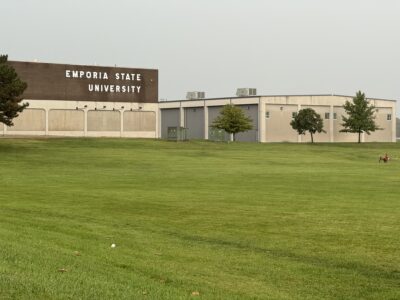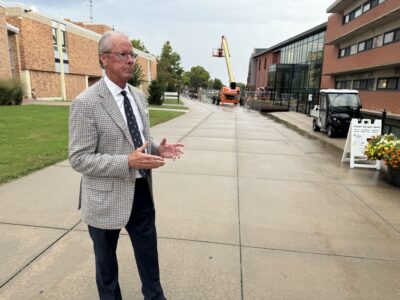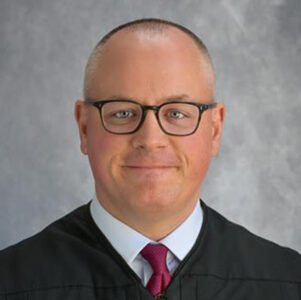Regents pass social media policy in wake of Guth tweet
Topeka ? Topeka — The Kansas Board of Regents on Wednesday approved a policy that would allow the firing of university employees if they communicated through social media in a way that aversely affects the school.
The policy was made in response to the anti-NRA tweet by Kansas University professor David Guth, which caused a national uproar.
Under the social media policy approved unanimously by the regents, the chief executive officer of a state university has the authority to suspend, dismiss or terminate any faculty or staff member who makes improper use of social media.
Improper use means making a communication that:
— Directly incites violence or other immediate breach of the peace;
— Is made pursuant to the employee’s official duties and is contrary to the best interests of the university;
— Discloses confidential student information, protected health care information, personnel records, personal financial information, or confidential research data; or
— Impairs discipline by superiors or harmony among co-workers, has a detrimental impact on close working relationships, impedes the performance of the speaker’s official duties, interferes with the regular operation of the university, or otherwise adversely affects the university’s ability to efficiently provide services.
Each university must establish and publish grievance procedures for use by faculty and staff in appealing employment decisions of the institution.
Regents Chairman Fred Logan said the policy tracks language in U.S. Supreme Court decisions on First Amendment rights and was deemed constitutional by the Kansas Attorney General Derek Schmidt’s office.
Logan said a specific policy on social media was needed because “there is some feeling that social media can lead to extraordinary damage very quickly.”
In addition, board members said they thought it was necessary to institute a policy on social media when they realized after the Guth uproar that there wasn’t one.
He said the policy was “inspired” by the Guth incident, but declined to say whether Guth could have been fired under the new policy. Logan said that incident was a personnel matter for KU to decide. KU spokesman Tim Caboni declined to speculate on how the policy would have affected Guth’s situation.
Guth was placed on administrative leave in September after a Twitter post following the shootings that left 13 dead at the Navy Yard in Washington, D.C. Guth wrote: “The blood is on the hands of the #NRA. Next time, let it be YOUR sons and daughters. Shame on you. May God damn you.”
The post angered many who thought Guth was wishing death on the children of National Rifle Association members. Guth has since apologized and has said he did not mean that he wanted children to die.
Guth’s leave has since ended, and he’s been put back to work on administrative duties.
KU Chancellor Bernadette Gray-Little said the policy was generated by the regents, and she wasn’t that familiar with it. She said any decision to fire someone could ultimately be appealed to court.
Faculty representatives had urged the board to postpone its Wednesday vote so that faculty members could provide input.
“It’s a little broad and doesn’t protect us in a lot of ways,” Sheryl Lidzy, of Emporia State University, who is president of the Council of Faculty Senate, said of the policy.
Logan refused, but added that the board would welcome input over the next several months. “That will be part of a continuing conversation,” he said.
Gerald Mikkelson, a KU professor of Russian and Eastern European studies and member of the KU Faculty Senate, said he was “not only surprised but shocked” by the policy, which he described as “repressive” and a “threat to the already existing mechanisms for dealing with malfeasance.”
“It’s a direct affront to the faculty and staff,” he said.
KU Provost Jeff Vitter urged the regents to use caution, saying that the policy will be scrutinized nationally. “You are potentially walking into a dangerous situation,” he said.
— Ben Unglesbee contributed to this report. Statehouse reporter Scott Rothschild can be reached at 785-423-0668.







